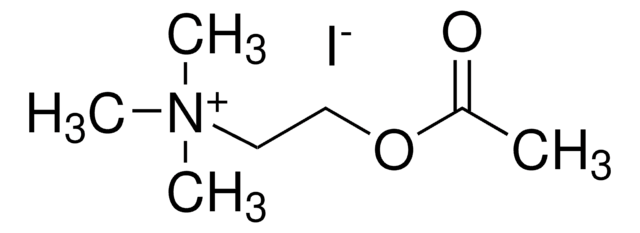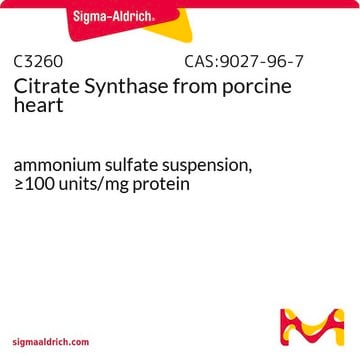D8130
5,5′-Dithiobis(2-nitrobenzoic acid)
≥98%, BioReagent, suitable for determination of sulfhydryl groups
Synonym(s):
3-Carboxy-4-nitrophenyl disulfide, 6,6′-Dinitro-3,3′-dithiodibenzoic acid, Bis(3-carboxy-4-nitrophenyl) disulfide, DTNB, Ellman’s Reagent
About This Item
Recommended Products
product line
BioReagent
Assay
≥98%
form
powder
mp
240-245 °C (dec.) (lit.)
suitability
suitable for determination of sulfhydryl groups
SMILES string
OC(=O)c1cc(SSc2ccc(c(c2)C(O)=O)[N+]([O-])=O)ccc1[N+]([O-])=O
InChI
1S/C14H8N2O8S2/c17-13(18)9-5-7(1-3-11(9)15(21)22)25-26-8-2-4-12(16(23)24)10(6-8)14(19)20/h1-6H,(H,17,18)(H,19,20)
InChI key
KIUMMUBSPKGMOY-UHFFFAOYSA-N
Looking for similar products? Visit Product Comparison Guide
General description
Application
Storage Class Code
11 - Combustible Solids
WGK
WGK 3
Flash Point(F)
Not applicable
Flash Point(C)
Not applicable
Personal Protective Equipment
Certificates of Analysis (COA)
Search for Certificates of Analysis (COA) by entering the products Lot/Batch Number. Lot and Batch Numbers can be found on a product’s label following the words ‘Lot’ or ‘Batch’.
Already Own This Product?
Find documentation for the products that you have recently purchased in the Document Library.
Customers Also Viewed
Protocols
To measure chloramphenicol acetyltransferase activity, this procedure uses DTNB and coenzyme A. The reaction of DTNB with the –SH group on CoA results in a colorimetric increase at 412 nm.
To measure chloramphenicol acetyltransferase activity, this procedure uses DTNB and coenzyme A. The reaction of DTNB with the –SH group on CoA results in a colorimetric increase at 412 nm.
To measure chloramphenicol acetyltransferase activity, this procedure uses DTNB and coenzyme A. The reaction of DTNB with the –SH group on CoA results in a colorimetric increase at 412 nm.
To measure chloramphenicol acetyltransferase activity, this procedure uses DTNB and coenzyme A. The reaction of DTNB with the –SH group on CoA results in a colorimetric increase at 412 nm.
Our team of scientists has experience in all areas of research including Life Science, Material Science, Chemical Synthesis, Chromatography, Analytical and many others.
Contact Technical Service











